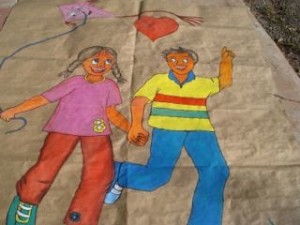Children learning about food rights in Bolivia
 The right to food is one of the basic human rights being taught to children and adolescents by a Caritas funded programme in Bolivia.
The right to food is one of the basic human rights being taught to children and adolescents by a Caritas funded programme in Bolivia.
The programme – called PUJLLAY – is running in the Cochabamba region with the support of Caritas Australia. In 2012-13, nearly 200 workshops on food security, the right to food and nutrition were held as part of a series of more than 500 events. Children were also educated about leadership, children’s rights and health.
The PULLJAY programme is targeted at young people aged from 5 to 17 and aims to give them the knowledge and confidence to take up opportunities which can positively change difficult circumstances. It empowers them to speak out and instills in them the wisdom that adversities will always arise in life – but they can be overcome.
So far, 1 700 young people have taken part and have set up over 300 vegetable gardens to improve the food security of themselves and their families. Some have successfully moved on to rear livestock as well. They’ve been given a solid understanding of nutrition and training on how to look after their crops and animals. Schools and orphanages as well as the wider community have been the focus as over 60 percent of Bolivian children report that they have been mistreated either at school or at home.
Carmen is one of them. At age 7 she moved to a new school as she says at her first one she was physically hurt by the teachers. “I was smacked with a ruler and shouted at,” she whispers. “I was scared to go there. But I was also afraid to go home as my Dad would also hit me because I couldn’t read. “
Carmen can read now and after 3 years in the PULLJAY programme is an admired young leader in her school’s food security project. “I help to water the vegetable garden, do the weeding and clean out the hen house,” she smiles. Recycling, stewardship of creation’s bounty and sustainable agricultural systems are also taught to Carmen and her friends to ensure they value their food and the land which produces it.
